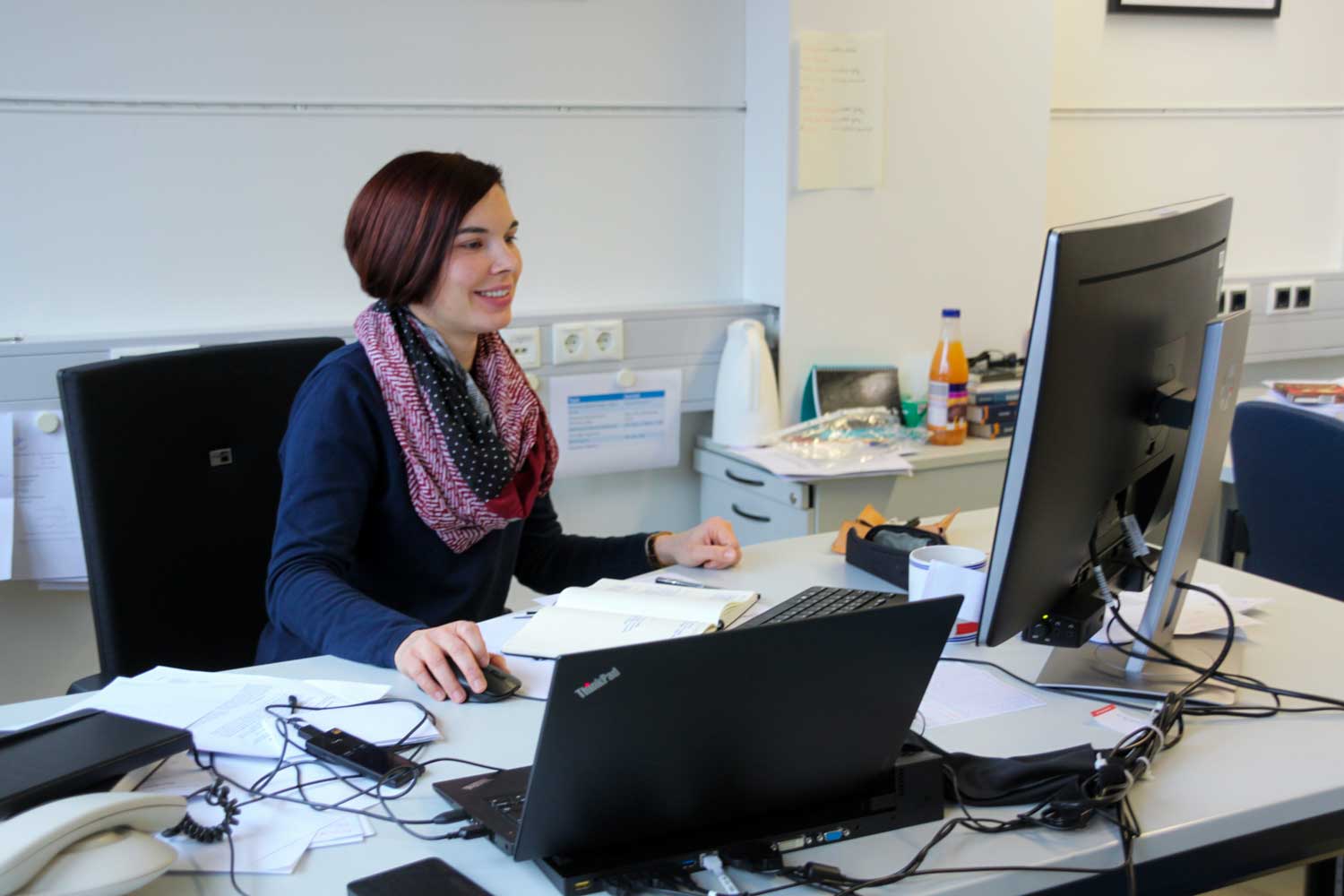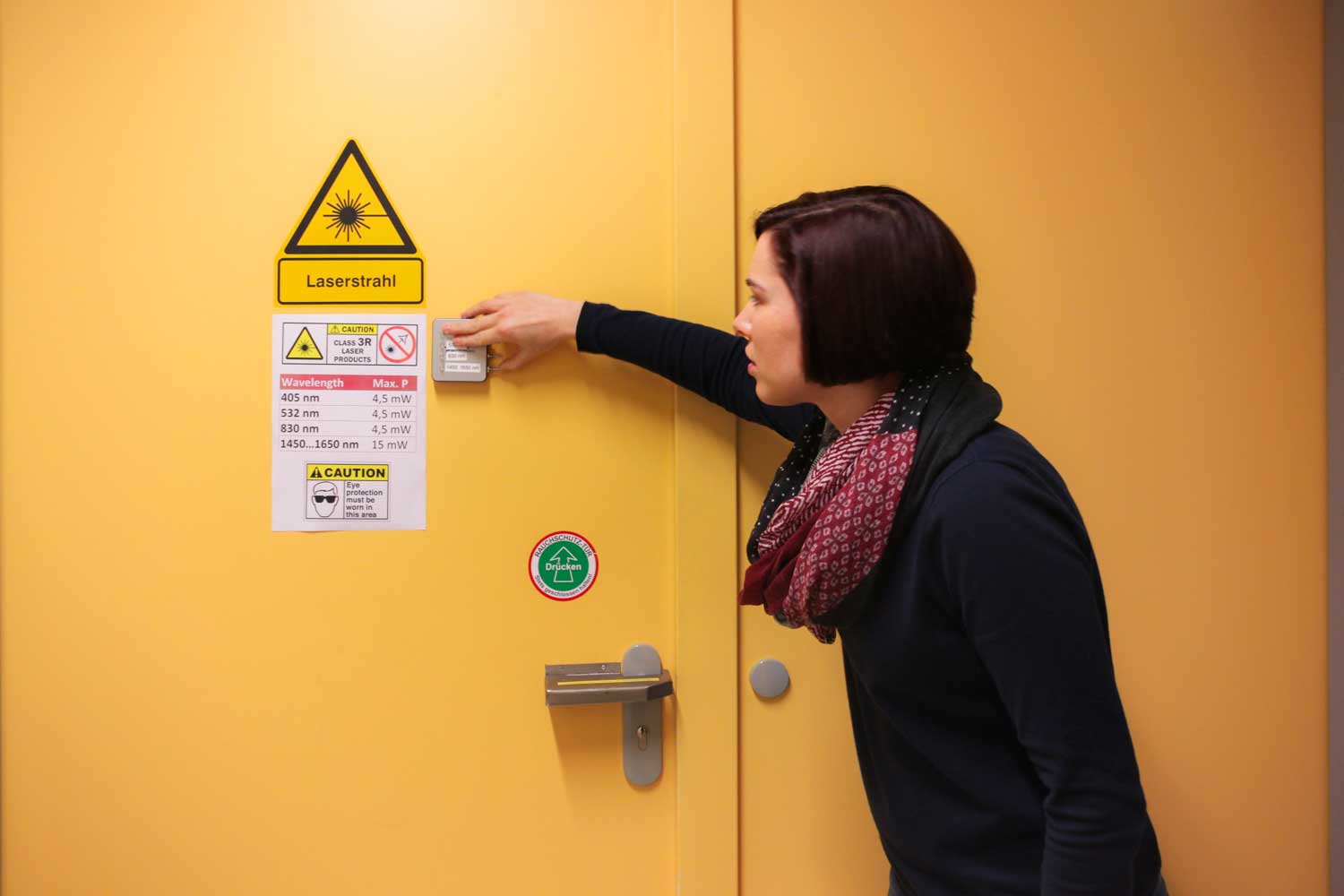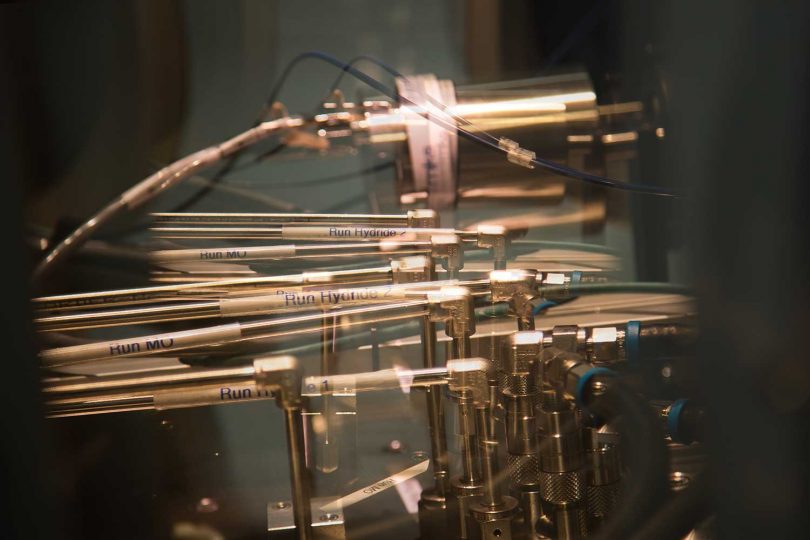The light tamer Focus on Research: At the Limit of Measurability
Stefanie Kroker was a little surprised when she received the job offer. It was only her first job application after earning a doctorate in physics. “But I was very happy that it worked out right away”, she proclaims. Since April 2016, the 32-year-old junior professor has been leading the Metrology for Functional Nanosystems junior research group at LENA, the joint research centre of TU Braunschweig and the National Metrology Institute of Germany (PTB).
Until the research centre’s new building is completed, she will be working on PTB premises. On the desk in her office: papers, notebooks, mobile phone and coffee mug – creative chaos, she admits with a laugh. On the wall is a panoramic shot of her hometown Jena, a gift from her colleagues. At the moment, her team comprises a half-dozen doctoral candidates and students. The working group is still being set up.
High precision using everyday material

Junior professor Stefanie Kroker is leading the Metrology for Functional Nanosystems junior research group at LENA, the joint research centre of TU Braunschweig and the National Metrology Institute of Germany (PTB). Credit: Andrea Hoferichter/TU Braunschweig
Kroker’s topic: highly accurate measurements using light and structures on a millionth-millimetre scale. In the future, this could simplify the detection of air-borne pollutants and cancer cells, and improve the accuracy of laser measurement technologies. “We focus on materials that are readily available and inexpensive, such as silicon”, the physicist says. That semiconductor can for example be found in sand and has been the basic building block of microchips and solar cells for several decades now. Kroker and her team want to investigate how this everyday material will react to light when it is only nanometres in size. “Not much is known about this so far”, she explains.
A counterbalance to the research work
The young professor spends two days a week at TU Braunschweig, giving lectures and attending to her students. “I like being in the lecture hall”, she comments, stressing that she finds it important to make a contribution to well-educated scientists. The days spent at the university provide a good counterbalance to her research work. “I find that focussing completely on the students keeps me grounded.”

Behind this door will be the laser lab where Stefanie Kroker can conduct highly accurate measurements using light and structures on a millionth-millimetre scale. Credit: Andrea Hoferichter/TU Braunschweig
Stefanie Kroker sees herself as a professor with a bridging function. She wants to deepen the close cooperation between TU Braunschweig and PTB even further. She is also strengthening TU Braunschweig’s ties to Leibniz Universität Hannover, where she earned a doctorate for her work with colleagues on developing optical sensors that successfully measured gravitational waves in early 2016. This marked a milestone in the history of science, the confirmation of Einstein’s theory of relativity and a key to completely new insights into cosmic events.
Apparently, it is not obligatory to be a physics “nerd” from a very early age to have a career like Kroker’s. “I was in eighth or ninth grade when I realised I was really interested in scientific questions”, she recounts. And she has other interests in life besides science, including travel. Her favourite destination is Italy, more specifically the region around Naples. She even taught herself Italian as a teenager.
She also likes to play the accordion, the bass guitar, and the piano. Has she joined one of the big bands at PTB or TU Braunschweig? “Well, yes, I’ve heard about them”, the researcher laughs, “but that will have to wait. At the moment, I am much too busy.”
Text: Andrea Hoferichter

